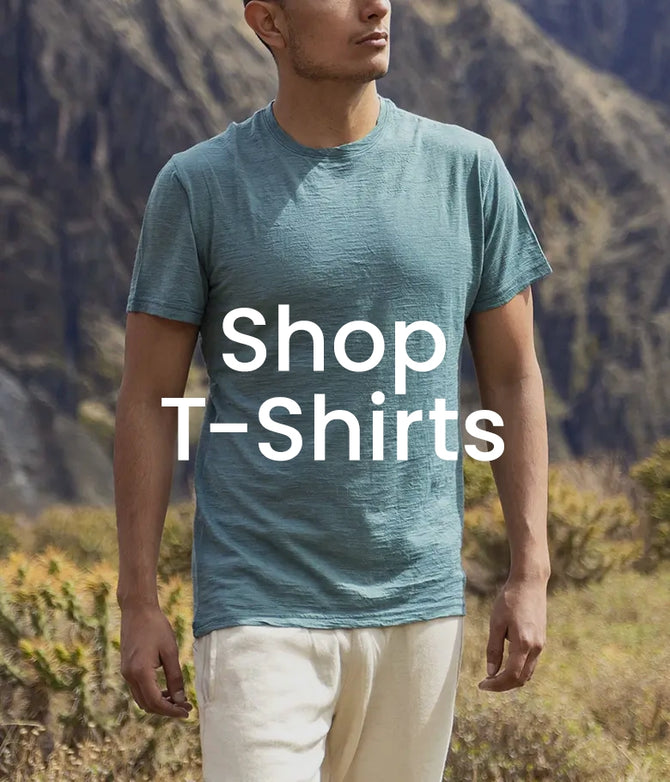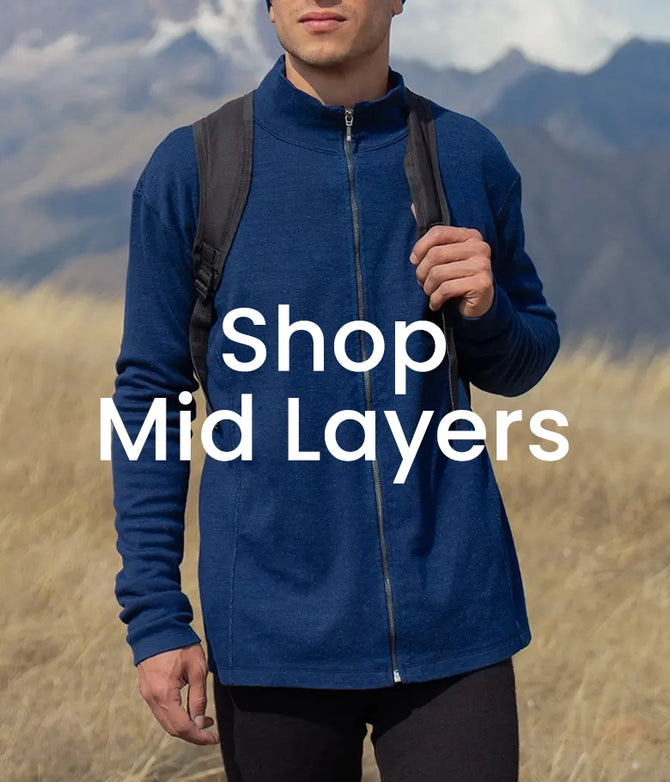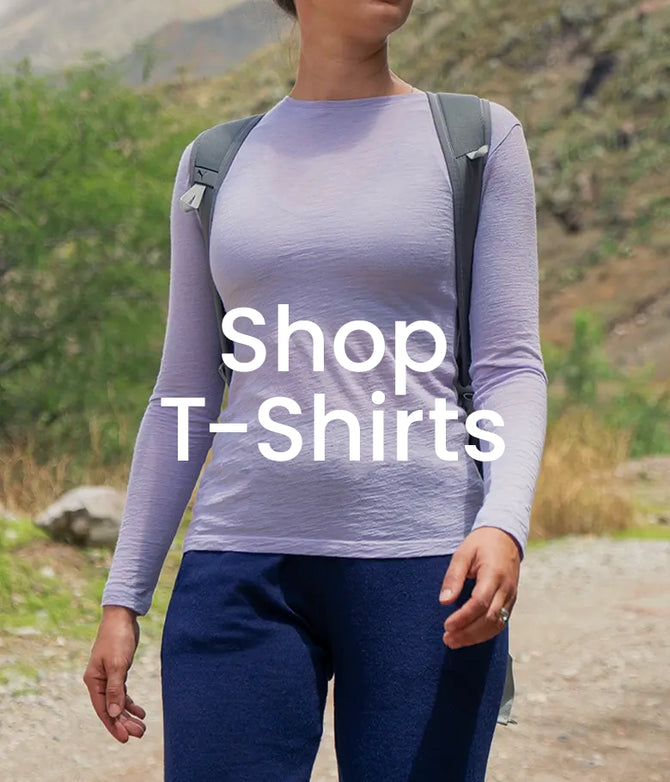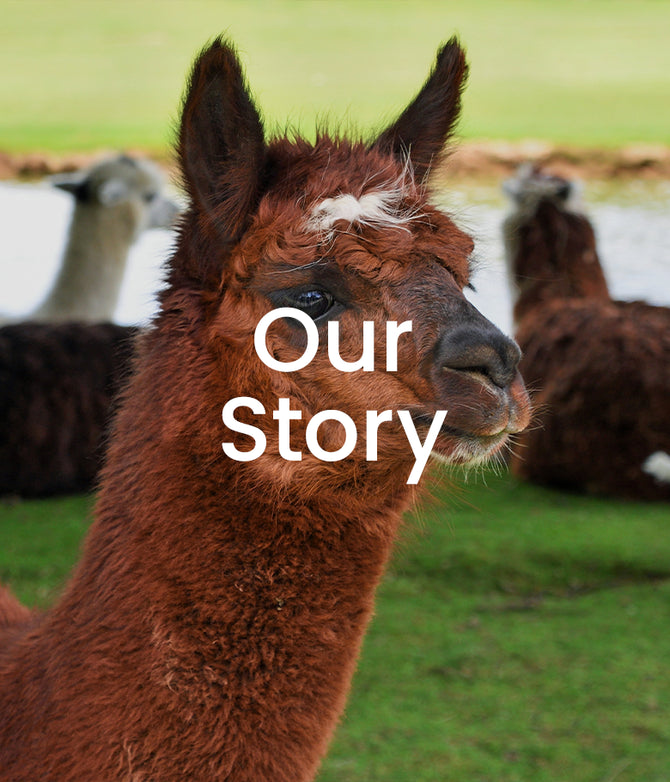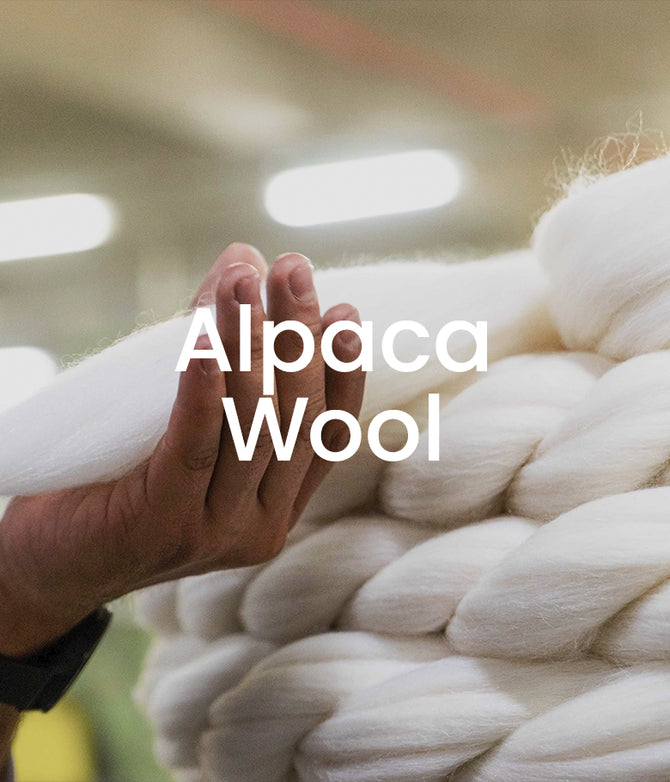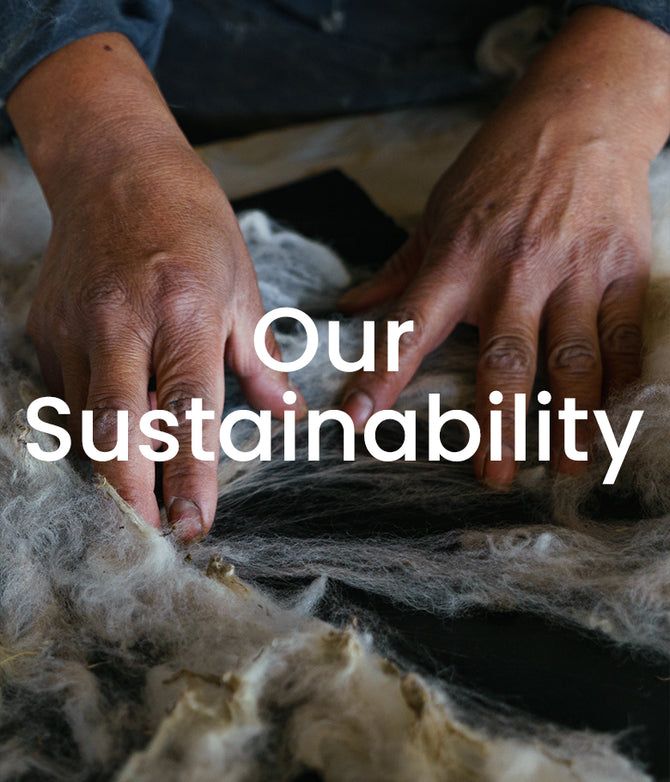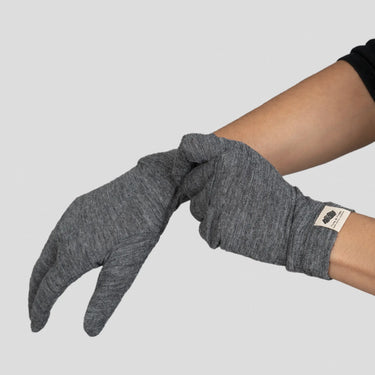Product weight (medium): 1 oz / 30 gr
Alpaca vs Merino
Alpaca Wool outperforms Merino.
Alpaca fibers evolved in the harsh Peruvian Andes over millennia, to keep you protected on any adventure.
Unique Semi-Hollow Fibers:
• Lighter Weight
• Higher Insulation
Smoothest Fiber Scales:
• Moisture Wicking
• Softer without Felting
High-Performance Fiber
Pack lighter, travel farther.
Get the most out of nature with the ultimate performance fiber. Explore the outdoors clean and dry, with naturally anti-bacterial and temperature regulating Alpaca Wool.
❊ Anti-bacterial & Odor-resistant
↻ High sweat-wicking
☁ High breathability
☀ UV - Protection
✓ Light & durable
Microplastic-Free World
We put a stop to plastic pollution.
It is our mission to make clothes that allow you to explore nature without contaminating it with microplastics.
This is the first step in making our entire catalog petroleum-free and biodegradable.
We use only biodegradable materials:
• 100% Alpaca Wool Fabric
• 100% Cotton Threads
• 100% Cotton Labels
Shipping & Returns
Free Shipping on orders over 200 €
Size Guide - Gloves
Size Guide
Our clothes are a functional fit which is similar to a slim fit. If you prefer a regular fit, we recommend sizing up.
Inches:
| Size | Hand Length | Palm Girth |
| S | 7.2 in | 7 in |
| M | 8.4 in | 8 in |
Centimeters:
| Size | Hand Length | Palm Girth |
| S | 18.5 cm | 18 cm |
| M | 20.5 cm | 21.5 cm |
How to measure:


LESS WEIGHT, LESS WASHING
The Best Natural Thermal Glove Liners
Fabric Specs
- 160g/m2 of 100% Alpaca Wool
- PFAS-free
- Single Glove Weight: 25 g (Size M)
- Designed for hiking, trail running, traveling, and backpacking in all seasons
- Not made for tasks involving friction or abrasion—these are not heavy-duty work gloves.
- Fitted cut with a natural stretch
- Pairs well with our Neck Warmer through winter and fall
Fabric Care (pop up)
Fabric Care
Naturally Dyed Clothes
Although natural dyes are environmentally friendly, protective to skin and give pleasing colors, they do not bond with textile fiber materials like synthetic dyes. This may lead to slight color changes when sweating or rubbing and the colors may bleed a little.
We recommend using naturally colored clothing with other dark clothing or equipment like backpacks. We also recommend washing your clothing as little as possible, to ensure that the unique color lasts as long as possible.
If you do find your alpaca clothing needs a wash:
- Hand wash or machine wash on a gentle cycle in cold water with a gentle/wool detergent.
- Wash with like colors. The dye will likely tint the washing water, but the color of your garment won’t be changed.
- If hand-washing, rinse the garment(s) in cold water and gently squeeze out the excess water.
- Lay the garment flat to dry.
- Iron on warm setting, if you feel ironing is necessary.
- Store your garments, preferably folded rather than hung.
A few things to avoid:
- Do not use fabric softener or bleach.
- Be cautious when using citric acid, as it may naturally bleach botanically dyed fabrics.
- Do not tumble dry or dry clean.
- Try not to twist or wring the fabric too much.

NATURAL HIGH-PERFORMANCE
The Best Ski Glove Liners
For thousands of years, alpacas have been adapting to extreme environments of the Andes Mountains, where temperatures range widely. The harsh highland conditions created the ultimate outdoor fiber, designed to keep you protected, clean, and comfortable.
Designed for the Outdoors
- Perfect Temperature
Semi-hollow fibers act as an internal A/C, balancing your body temperature in extreme climates. - Always Dry
High moisture-wicking fibers keep your body and clothes dry and sweat-free all day. - Clean & Fresh
Naturally anti-bacterial & odor resistant keratin fibers ensure your hygiene.
Go Further, Pack Lighter
Alpaca Wool is lightweight and does not require frequent laundering, letting you explore lighter.
- Light & Durable
Semi-hollow core fibers insulate and make the fabric lighter and resistant. - Wear More, Wash Less
Alpaca dries quickly and absorbs minimal moisture, preventing bacterial growth.
Luxurious Softness
- Smooth Fiber Scales
The scales of alpaca fibers are smoother than those of sheep wool. They help wick moisture away, while also having incredibly low moisture absorption. - 18 to 19 Microns* Alpaca Wool
The finest Alpaca Wool with naturally smooth fiber scales minimize felting and ensure luxurious softness on your skin without itching.
*Microns define the diameter of the fiber.

ALPACA WOOL: FIBER OF THE GODS
The Superior Fiber for the Outdoors
Alpaca wool is a superior choice for the outdoors and outperforms any other fiber: merino wool, cotton, rayon and polyester.
Alpaca vs Other Fibers
Alpaca wool, compared to merino wool, cotton and recycled polyester, is the most breathable, lightweight and softest fiber.
Learn more about the benefits of Alpaca Wool on our blog.
| Alpaca Wool | Merino Wool | Cotton | Recycled Polyester | |
|---|---|---|---|---|
| Carbon Footprint | Lowest | High | High | Very High |
| Single Origin | ✓ | ✖ | ✖ | ✖ |
| Biodegradable | ✓ | ✓ | ✓ | ✖ |
| Fiber Scales | Smooth | Prickled | Soft | Rubbery |
| Microns (Avg.) | 18 | 18 | 5 | 10 |
| Blistering/Chaffing When Sweating | Low | Medium | High | High |
| Thermal Capacity | 5x Warm | Warm | Low | Warm |
| Fiber Medullation | Hollow | Semi-hollow | Hollow | Solid |
| Breathability | High | Medium/High | Highest | Low |
| Moisture Wicking | High | Medium/High | ✖ | ✖ |
| Moisture Retention | <10% | <30% | 100% | Variable |
| Hypoallergenic (no lanolin) | ✓ | ✓ | ✓ | ✓ |
| Odor Resistant | ✓ | ✓ | ✓ | ✖ |
| Anti-bacterial | ✓ | ✓ | ✓ | ✖ |

LOW ENVIRONMENTAL IMPACT
The Best Natural Thermal Glove Liners
When wearing 100% Alpaca Wool, you can rest assured that your clothes are not contaminating nature.
Alpaca Gloves Materials & Ingredients
- 100% Alpaca Wool Fabric
- 100% Cotton Threads
- 100% Organic Cotton Labels
- 100% Natural Dyes or OEKO-TEX Certified Dyes
- OEKO-TEX Certified Silicone Fabric Finishing
- GOTS Certified Ink (for the labels)
Zero Microplastics & Toxic Chemicals
We created 100% plastic-free and biodegradable shirts so that you can wear your clothes knowing that you are not releasing any microplastics.
Microplastics are not only found in the environment but also in our bloodstream.
Our naturally dyed shirts contain zero synthetic dyes and we are looking for a natural replacement for the silicone fabric finishing.
Our wool is never Superwashed since alpaca fibers are naturally smooth.
Free-Roaming Andean Alpacas
Alpacas roam freely in their natural habitat in the highlands of Peru. Their farmers never harm or kill them for their wool. Alpacas create small footprints that do not damage the fields they graze on. When they eat, they cut the grass, promoting regrowth.

SINGLE ORIGIN SUPPLY CHAIN
Where Were These Gloves Made?
We use natural local resources and a short transparent supply chain. Our mission is to teach you as much as possible about how clothes should be made. Together we can move the fashion industry towards a sustainable future.
Designed & Made in One Country: Peru
Contrary to industry norms, every step involved in making our clothes is done in only one country: Peru, the home of our family. Our production in Peru includes fiber sourcing, yarn spinning, fabric knitting, dyeing, finishing, and garment sewing.
From Peru, our clothes go straight to California or Europe on its journey to you.
Low Carbon Footprint
Manufacturing in one country allows us to greatly reduce our carbon footprint and freight shipping. This is a major step on our journey to becoming a carbon negative company.
Transparency & Traceability
We avoid industrial farming by working with co-op farmers in the Andes. Doing everything in Peru guarantees we know how the alpacas and the workers involved are being treated.

